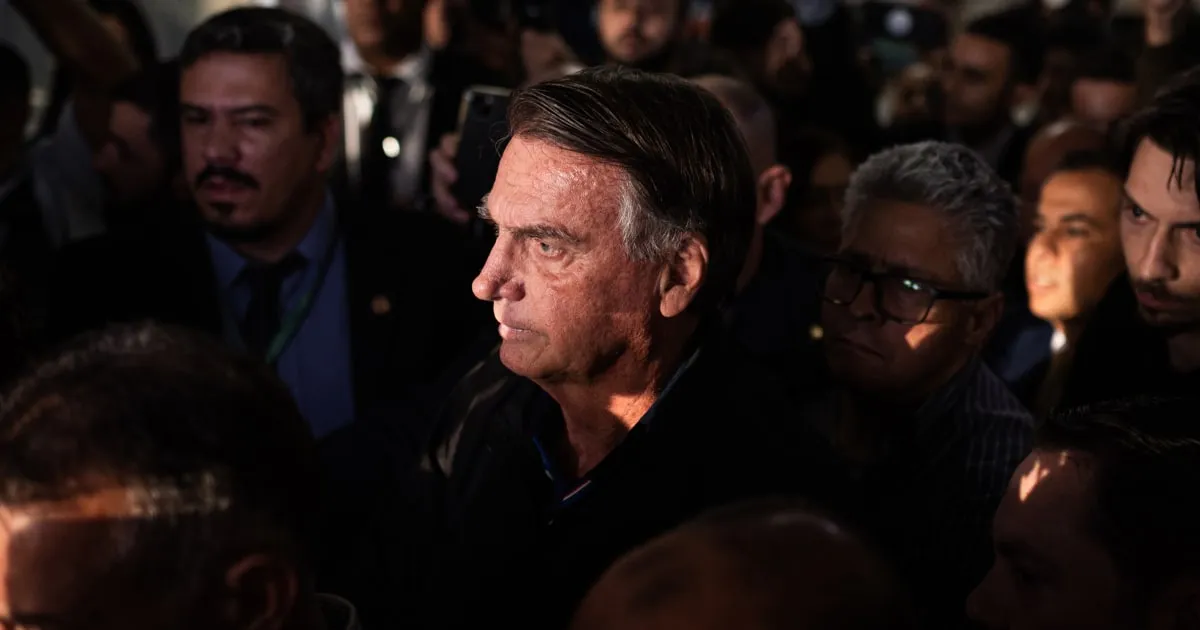
In a landmark ruling, former Brazilian President Jair Bolsonaro was sentenced to 27 years and three months in prison for his role in plotting a coup to retain power following his defeat in the 2022 election. This significant conviction marks a profound rebuke to one of the most prominent figures in the global far-right populist movement. The decision was announced by a panel of five justices from Brazil’s Supreme Court, who unanimously agreed on both the conviction and the severe sentence.
At 70 years old, Bolsonaro becomes the first former president in Brazil's history to be convicted for actions aimed at undermining democracy. Justice Carmen Lucia, one of the judges, remarked that this case represents a meeting point of Brazil's past, present, and future, highlighting the country's tumultuous history of military coups and democratic struggles. She stressed that the evidence clearly demonstrated Bolsonaro's intentions to "erode democracy and institutions."
The Supreme Court found Bolsonaro guilty of multiple charges, including: participation in an armed criminal organization, attempting to violently abolish democracy, organizing a coup, and damaging government property and protected cultural assets. This ruling comes amidst a broader context where other far-right leaders, such as France's Marine Le Pen and the Philippines' Rodrigo Duterte, have faced legal challenges this year.
The conviction has drawn disapproval from figures within the Trump administration. Former President Donald Trump, a close ally of Bolsonaro, referred to the legal proceedings as a "witch hunt" and expressed that the verdict is detrimental to Brazil. Trump’s remarks included a prediction of potential sanctions against Brazil, further escalating tensions between the two nations.
As the news of his father's conviction reached him in the U.S., Brazilian Congressman Eduardo Bolsonaro anticipated that Trump might consider imposing additional sanctions on Brazil and its judiciary. U.S. Secretary of State Marco Rubio echoed similar sentiments, claiming that the ruling was unjust and indicating that the United States would respond appropriately to this perceived political attack.
Interestingly, the court's verdict was not unanimous. Justice Luiz Fux dissented, acquitting Bolsonaro of all charges and questioning the jurisdiction of the court. This dissenting opinion could pave the way for future legal challenges, potentially delaying the finality of the trial as Brazil approaches its next presidential election in October 2026. Despite his legal troubles, Bolsonaro has declared his intention to run in that election, despite being barred from holding public office until 2030.
The conviction of Bolsonaro represents a dramatic fall from grace for a figure who once transitioned from the back benches of Congress to leading a powerful conservative coalition in Brazil. His political career began in the 1980s at the Rio de Janeiro city council after serving in the military. Known for his controversial views, Bolsonaro long defended authoritarian policies and gained notoriety for his extreme rhetoric.
His rise to power coincided with the national outrage over corruption scandals, leading to his successful presidential campaign in 2018. His presidency was characterized by skepticism towards vaccines, aggressive support for illegal mining, and significant environmental degradation in the Amazon rainforest. As he faced Lula in the 2022 election, Bolsonaro's rhetoric became increasingly incendiary, culminating in unfounded claims about Brazil's electronic voting system, which ultimately led to his disqualification from future elections.
The Supreme Court's decision to convict Bolsonaro is part of a broader strategy to safeguard Brazil's democracy from what officials describe as dangerous far-right attacks. This includes holding accountable those who undermine electoral integrity and those who threaten judicial independence. The conviction of Bolsonaro and several of his allies, including military officers, is a historic move that signals a shift in Brazil's political landscape.
According to historian Carlos Fico, this trial serves as a wake-up call for the Brazilian armed forces, marking the first time in nearly 140 years that military officials have faced consequences for attempting to undermine democracy. This pivotal moment underscores the ongoing struggle for democratic governance in Brazil and the importance of accountability for those in power.